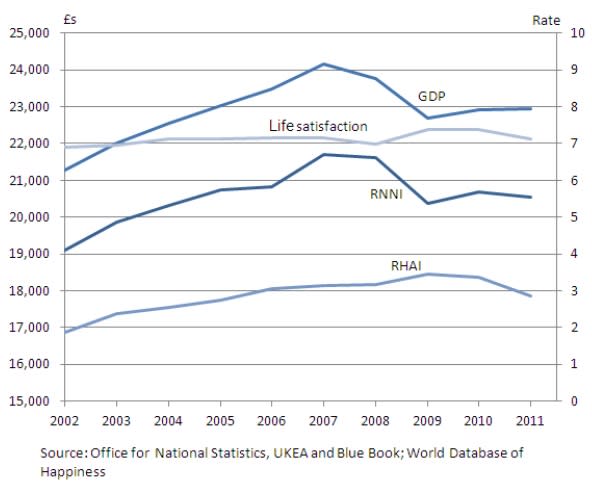Money isn't everything: UK well-being remains level despite downturn
The first results of the ONS National Wellbeing Index also listed the Outer Hebrides, Shetlands and Orkney Islands as the happiest places in the UK.
The credit crunch has not had an adverse effect on the happiness of Britons, newly-released data revealed today.
As the Office for National Statistics released its first full report under the national well-being programme, it emerged that the national mood has remained resilient in the face of the recession.
Although the financial crisis led to a higher proportion of unemployment, particularly on the young, overall 'life satisfaction' has remained broadly stable during the last decade.
The survey results also showed that those in the Outer Hebrides, Shetlands and Orkney Islands were among the happiest in Britain, compared to residents of London, Edinburgh, Luton, Reading, and Slough, who had the lowest happiness ratings.
The data is the result of a programme initiated by David Cameron, who commissioned a 'happiness index' two years ago to assess the state of the nation.
The Prime Minister will be encouraged by other findings from the ONS, which also suggest our 'healthy' life expectancy has increased, as has our overall satisfaction with our health.
Three-quarters of respondents (75.9%), also gave a medium or high level of satisfaction with their lives overall.
Economically, the data shows that despite Britain's plunging GDP (Gross Domestic Product) and RNNI (Real National Net Income) after the credit crunch in 2008, the general mood of the UK actually went up.
The survey also reported that one in eight (12.3%) find it quite or very difficult to get by financially.
Related: The four-in-one flat which re-invents living
Since 2009 both GDP and RNNI have begun to increase again, albeit at a slower rate than before 2007.
According to the ONS, there was a fall in life satisfaction between 2007 and 2008, immediately before the credit crunch.
They say this was caused by an 'initial reaction to the news of the recession, whereby people were concerned about their finances and what the recession may mean for them'.
Related: Energy bills: Shake-up could push up cost
However, this was followed by a period where a person's income was not immediately affected, partly explaining the increase in life satisfaction.
Other important measures of happiness are seen as health, relationships, governance, education, and the natural environment.
In less positive news for the Prime Minister, the ONS data showed that just one in five (21%) trust the national government, a drop of 11% from the one in three (32%) who trusted the government in Spring 2011.

 Yahoo News
Yahoo News 


